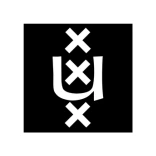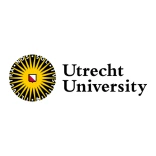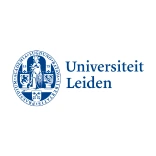Study in Netherlands
– Aara Consultancy can help you choose the right country and program for your Study Abroad needs and goals, and guide you through the entire application process.
Why Study in Netherlands?
1. The Netherlands is a popular study-abroad destination known for its world-renowned universities and vibrant culture. It is a country known for providing high-quality education to international students, with its universities ranking among the top in Europe and globally.
2. Education in the Netherlands stands out for its academic excellence, international outlook, and commitment to innovation. Dutch universities provide a rich and stimulating learning environment, encouraging critical thinking, creativity, and practical skills. By choosing the Netherlands as their educational destination, international students embark on a transformative journey that not only equips them with a high-quality education but also exposes them to a multicultural society and a global perspective.
3. Research opportunities: The Netherlands is known for its cutting-edge research and innovation, providing students with numerous possibilities. There are many research universities which offer research-oriented programmes in an academic setting.
4. Compared to other popular study-abroad destinations, the cost of living and studying in the Netherlands is relatively low, making it an attractive option for students who are seeking a high-quality education at an affordable cost. Amsterdam and Rotterdam are much cheaper than other popular European cities like London or Paris. Tuition fees in universities in the Netherlands are also comparatively less than in the UK, USA or Canada.
5. Dutch universities offer the largest number of English-taught programmes in continental Europe. About 2,000 programmes are taught entirely in English.
Top universities in Netherlands

University of Amsterdam (UvA)
The University of Amsterdam (UvA) is a research-intensive institution known for its academic excellence and diverse range of programs. With a history dating back to the 17th century, UvA has played a crucial role in shaping Dutch intellectual life. The university’s commitment to internationalization is evident in its multicultural student body and collaborations with institutions worldwide. UvA’s urban campus in Amsterdam provides a vibrant setting for academic and cultural exploration.

Delft University of Technology (TU Delft)
Delft University of Technology (TU Delft) is a global leader in engineering, technology, and applied sciences. Established in 1842, TU Delft has a strong reputation for producing innovative solutions to societal challenges. The campus in Delft is characterized by state-of-the-art facilities and a collaborative atmosphere. The university’s emphasis on sustainability and entrepreneurship has positioned it as a key player in technological advancements.

Utrecht University
Utrecht University, founded in 1636, is known for its interdisciplinary approach to education and research. The university’s diverse academic programs cover a broad spectrum of disciplines, fostering a well-rounded education for students. Utrecht’s commitment to sustainability and societal impact is evident in its research initiatives. The city of Utrecht provides a picturesque backdrop for academic and cultural experiences.

Leiden University
As the oldest university in the Netherlands, Leiden University has a rich history of academic achievement. Established in 1575, the university is renowned for its strong emphasis on research and critical inquiry. Leiden’s law school is among the best globally, and the humanities programs contribute significantly to the cultural heritage of the region. The picturesque campus in Leiden offers a unique blend of tradition and modernity.
Admission Requirements to Study in Netherlands
Admission requirements for studying in Netherlands can vary depending on the level of study (undergraduate, Masters) and the specific university and program. However, there are
some common requirements and procedures that international students typically need to fulfil:
1. High School Diploma or Equivalent – Recognized high school diploma or equivalent
qualification.
2. Language Proficiency – Most programs are offered in English so no need to learn any language.
3.English language proficiency (IELTS or TOEFL) required.
4. Marksheets and transcripts are required to get an admit.
5. Letter of Motivation – A statement of purpose or letter of motivation explaining why you want to pursue the program.
General Requirements-
1. Application Form – Complete the universities online application form.
2. Transcripts – Official transcripts of academic records from all previous institutions attended.
3. Portfolio (if applicable) – For programs in arts, design, or architecture, a portfolio of previous
work may be required.
4. Proof of Financial Means – Provide evidence that you have sufficient funds to cover your
living expenses in Netherlands.
5. Health Insurance – Health insurance is mandatory for all students in Netherlands.
Popular Subjects
Engineering
Finance
Information Technology
Environmental studies
Budget Requirement for Study in Netherlands
- Cost Estimation:
Tuition Fees – 6,000 – 15,000 EUR/year for a Bachelor’s degree
8,000 – 20,000 EUR/year for a Master’s degree
Other expenses – 10,000 Euros for monthly expenses, including accommodation, food, and other necessities.
- Additional Resources:
Please feel free to call Aara Consultancy Team for Education Loan Assistance.
Study in Netherlands – Frequently Asked Questions
Netherlands allows post-graduation work permits for international students, allowing them to stay and work after completing their studies.
While studying in the Netherlands, international students can work up to 16 hours per week throughout the year or full-time in the summer months (June to August)
Bachelors programs typically last 3 to 4 years, masters programs 1-2 years.
There are mainly two Intakes in the Netherlands, September intake and January Intake. The September intake is the primary intake in the Netherlands. All the Universities offer all their study programs for the September intake in Netherlands. January intake is the secondary intake.
